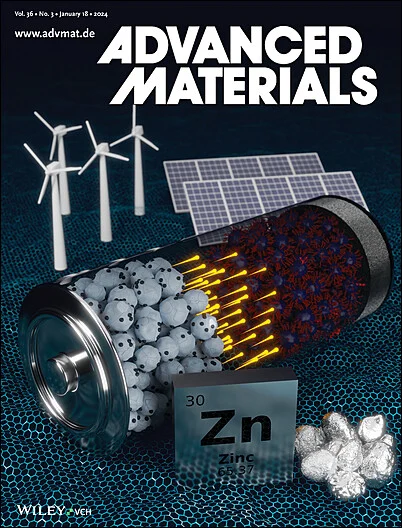Reengineering Endogenous Targeting Lipid Nanoparticles (ENDO) for Systemic Delivery of mRNA to Pancreas
IF 27.4
1区 材料科学
Q1 CHEMISTRY, MULTIDISCIPLINARY
引用次数: 0
Abstract
Lipid nanoparticles (LNPs) hold transformative potential for nucleic acid delivery, with applications ranging from clinical use, particularly in COVID-19 vaccines, to gene therapy and cancer immunotherapy. However, a major limitation lies in their preferential accumulation in the liver following intravenous administration, making most targets hard-to-reach. In this study, a novel platform called endogenous targeting lipid nanoparticles (ENDO), containing cholecalciferol (vitamin D3) as a fifth component is reported, that selectively delivers mRNA to the pancreas – a target previously inaccessible through intravenous administration. The top formulation, C-CholF3, demonstrates an unprecedented 99% pancreas selectivity with robust and sustained protein expression for up to 3 days in a dose-dependent manner with minimal toxicity that makes it suitable for repeat administration. This organ-specific delivery is proposed to be mediated by an endogenous targeting mechanism involving the Vitamin D receptor (VDR). C-CholF3 also enables selective pancreatic delivery of plasmid DNA and circular mRNA, underscoring its versatility and therapeutic potential. Furthermore, C-CholF3 exhibits pancreas-specific gene editing in the Ai14 transgenic mouse model, showing high expression of tdTomato in the β cells. These findings highlight its potential for translational applications in protein replacement and CRISPR/Cas9-mediated gene editing for currently incurable pancreatic diseases, including pancreatic cancer and diabetes.

重组内源性靶向脂质纳米颗粒(ENDO)用于向胰腺系统递送mRNA
脂质纳米颗粒(LNPs)在核酸递送方面具有变革性潜力,其应用范围从临床应用(特别是在COVID-19疫苗中)到基因治疗和癌症免疫治疗。然而,一个主要的限制在于静脉给药后它们在肝脏中的优先积累,使得大多数目标难以达到。在这项研究中,一种名为内源性靶向脂质纳米颗粒(ENDO)的新平台被报道,该平台含有胆钙化醇(维生素D3)作为第五种成分,可选择性地将mRNA递送到胰腺,这是以前通过静脉给药无法达到的目标。顶级配方C-CholF3显示出前所未有的99%胰腺选择性,以剂量依赖的方式具有长达3天的稳定和持续的蛋白质表达,毒性最小,适合重复给药。这种器官特异性递送被认为是由一种涉及维生素D受体(VDR)的内源性靶向机制介导的。C-CholF3还可以选择性地将质粒DNA和环状mRNA传递到胰腺,强调其多功能性和治疗潜力。此外,C-CholF3在Ai14转基因小鼠模型中表现出胰腺特异性基因编辑,在β细胞中高表达tdTomato。这些发现突出了其在蛋白质替代和CRISPR/ cas9介导的基因编辑方面的翻译应用潜力,用于治疗目前无法治愈的胰腺疾病,包括胰腺癌和糖尿病。
本文章由计算机程序翻译,如有差异,请以英文原文为准。
求助全文
约1分钟内获得全文
求助全文
来源期刊

Advanced Materials
工程技术-材料科学:综合
CiteScore
43.00
自引率
4.10%
发文量
2182
审稿时长
2 months
期刊介绍:
Advanced Materials, one of the world's most prestigious journals and the foundation of the Advanced portfolio, is the home of choice for best-in-class materials science for more than 30 years. Following this fast-growing and interdisciplinary field, we are considering and publishing the most important discoveries on any and all materials from materials scientists, chemists, physicists, engineers as well as health and life scientists and bringing you the latest results and trends in modern materials-related research every week.
 求助内容:
求助内容: 应助结果提醒方式:
应助结果提醒方式:


